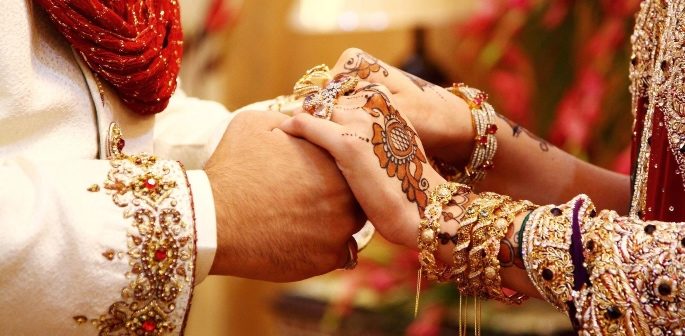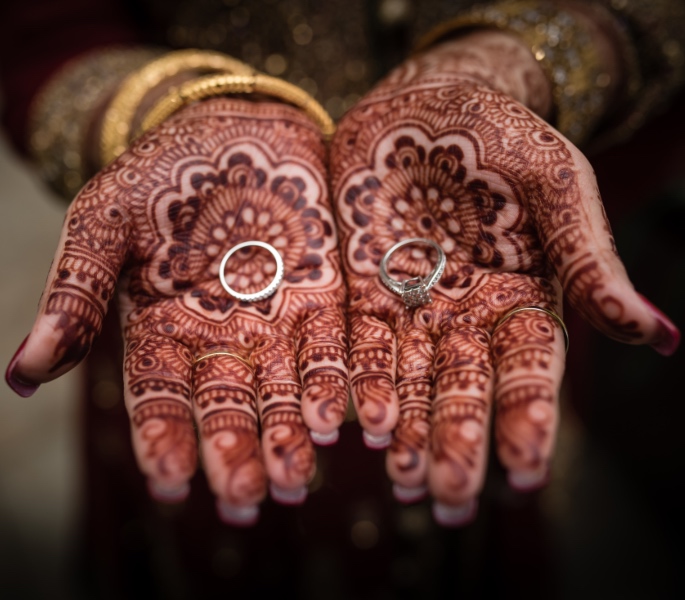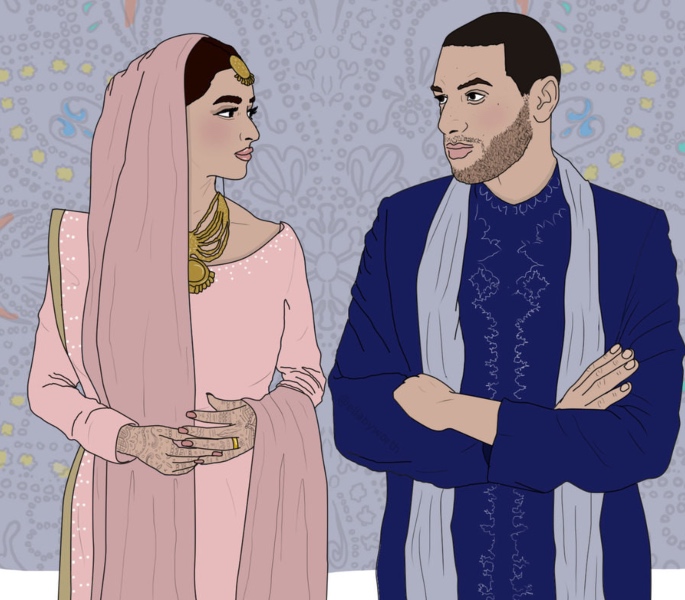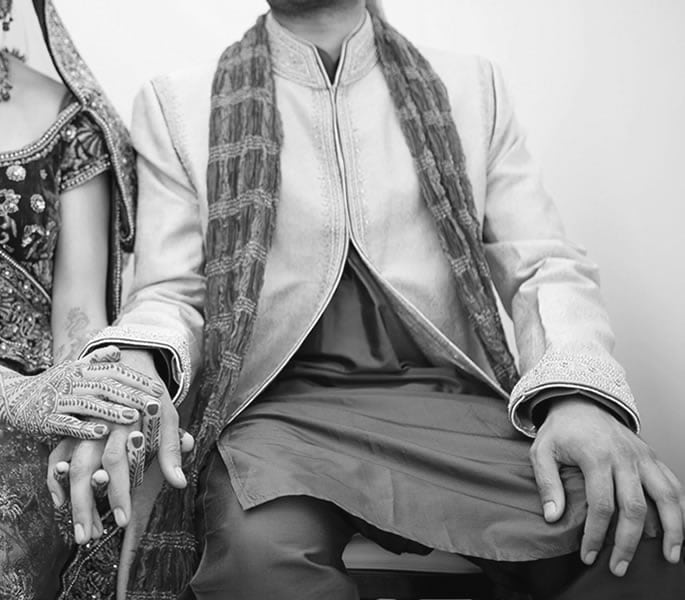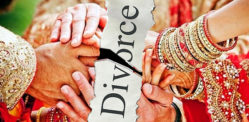"You can’t bring shame on the family. He’ll change."
Besharam is what on-looking aunties and uncles think when a Desi child is disobedient. This expectation of obedience doesn’t stop after childhood. This is where the line between forced and arranged marriage blurs.
The stereotype of forced marriage is that the parents make a deal for marriage. There is no input from the prospective couple and they are sometimes shown photos of each other. Deal done, no hassle.
Modern parents may let future spouses get to know each other. Maybe they’ll even like one another by the end of the phone calls or supervised visits.
If the spouses-to-be know and like each other doesn’t that mean it’s an arranged marriage?
In an arranged marriage the spouses-to-be get to know each other before getting married. The parents act as the introducers and the spouses-to-be can say no.
Forced and arranged marriages aren’t sounding all that different, are they? And here’s the issue that must be explored, the fine line between forced and arranged marriage.
DESIblitz exclusively spoke to three women about their marriage experiences to find out more.
Immediate Agreement
The power dynamic in the Desi parent-child relationship doesn’t permit the word ‘no’. Children, adults or otherwise, who disobey their parents are considered besharam.
Desi parents lay many expectations for their children. These include polite behaviour, ideal career and marriage.
Marriage, the final hallmark of success for ageing Desi parents, arguably, bears the most importance for Desi daughters.
Desi parents desire to find the perfect spouse for their children. Their grandchildren are the continuation of their blood-line. This may lead Desi parents to tread the very fine line between arranged and forced marriage.
Aysha was taken to Pakistan on a holiday. During her visit, her parents suggested that she meet with their friends who had a son, a ‘good boy’ who was ‘obedient’.
Aysha’s parents promptly showed her a photo of the boy. ‘Light-skinned’ and ‘hard-working’, he’d make an ideal son-in-law. It would be an engagement and next year they’d have the wedding in Pakistan, her parents promised.
But the choice was with Aysha, her parents said.
“My parents have done so much for me. They let me study, they let me go to university. They sacrificed so much when they came to the UK. I couldn’t say no.”
Aysha’s engagement in Pakistan soon turned into a wedding by the end of her ten-day visit. She never met her husband until her wedding day. Ultimately, Aysha couldn’t disappoint her parents.
“It’ll take at least a year before he comes over,” Aysha’s parents reassured her. But within six months of beginning the sponsorship process, Aysha’s husband was in the UK.
Aysha now had to be home before dark. A twenty-two-year-old woman had a curfew imposed by the husband she brought to the country. She quit her job since he didn’t like her working with men.
Soon Aysha fell pregnant and the abuse became worse. Her husband began kicking and slapping Aysha whilst she was pregnant. Aysha turned to her parents, the ones she had put her trust in.
“You can’t bring shame on the family. He’ll change. You need to listen to your husband,” Aysha’s father said, turning her away.
“I learned to keep my mouth shut. My parents will never support me leaving him. I have nowhere else to turn,” said Aysha.
Aysha’s put her trust in her parents. She hadn’t met her husband before marriage yet gave her consent. She felt forced to agree to the marriage and after marriage, her parents withdrew their support.
Aysha had agreed to the marriage but hadn’t realised it meant an abusive marriage. The fine line between arranged and forced marriage was crossed.
A Change of Heart
Ranjit was approaching her twenty-seventh birthday and had a steady career. Her parents had found out she had a boyfriend who had broken up with her. At 27, they said she was a budhi (old woman).
“You only have to meet them,” Ranjit’s mother reassured her.
Heartbroken from the failure of the relationship she had hidden for years, Ranjit agreed. “Okay. One meeting,” she said.
In a traditional salwar suit, Ranjit waited for the boy and his family to be seated. She served tea and bombay mix and the boy sat with his hands clasped.
The dripping of the tea into his cup was a stark reminder.
“Don’t speak. Don’t look at him. Serve the tea and sit down next to mum and dad.”
She wondered how she could marry him when she couldn’t speak with him. His mum did most of the talking. Ranjit’s career was a focal point along with her age.
“You must be in a rush now, beta?
“I-’
“She’s ready to take the next step,” Ranjit’s mother interjected.
“Acha, acha, okay, okay,” the boy’s mother and auntie smiled as they looked Ranjit up-and-down.
The family left and a couple of days later the engagement was confirmed. Ranjit’s mother booked flights to India to buy the wedding outfits. Ranjit had to book time off work.
The flash of colourful sarees made the whole-thing exciting. Her mum and dad spent a lot of money on gifts for the boy’s family as expected. They had a duty to impress Ranjit’s future in-laws.
When they returned to the UK it sunk in. Ranjit was marrying someone she didn’t know.
“I’m not so sure about this,” Ranjit said to her mum.
“Don’t be so stupid. It’s too late now. We’ve bought everything,” her mother replied.
“It’s going too fast. I didn’t think it would be like this,” Ranjit pleaded with her mother. She continued:
“You had the choice before. It’s too late now. What will everyone think? You’ll bring shame on our whole family.”
Ranjit wept in front of her mother but it was too late. Everything had been bought and her wedding was going ahead whether she agreed or not.
Ranjit had agreed to one meeting and didn’t expect her marriage to be arranged immediately. She, like Aysha, had put her trust in her parents.
But, again, parents crossed the fine line between arranged and forced marriage.
No Turning Back
Amira was introduced to her husband ten years ago. She did everything ‘right’. She allowed her parents to pick out a suitable match. An engineer born in the UK who was respectful to his parents.
Their forward-thinking parents encouraged them to get to know each other. Positive about the match, Amira and her potential-spouse agreed.
Amira moved in with her husband and his family. Her mother-in-law was a rare dream – she gave them time to themselves and stayed out of their business.
Amira was married for ten years and had two children before her husband strayed. She cried when she examined the credit card bills for hotels she didn’t visit.
“Did you know about this?” Amira asked her mother-in-law.
“Men do these things. You’re better off ignoring it,” replied her mother-in-law.
Still, her mother-in-law stayed out of their business.
Amira had never discussed sex with her parents. How could she tell them her husband was having an affair?
Shamed by her husband’s actions, Amira was sure the accusations would come her way. Why did her husband cheat? What had she done for him to stray?
Amira was aware of the implications of her leaving. She wouldn’t hurt herself; she’d hurt her parents and her children. Her children need to get married one day and divorced parents would ruin their chances.
Tied in, with no one to turn to, Amira couldn’t leave. Instead, she learned to ignore her husband’s actions.
He was the perfect match after all. Handsome, educated and from a good family. Everyone would blame her.
Forced marriages are largely seen as taboo in western society since the future spouses don’t have a choice. Modern families have adopted arranged marriage.
Desi children are usually taught to please their parents. As adults, this leads to agreeing with their parents’ choice-of-spouse.
While this is not always the case, it is quite common for South Asian parents to enforce their choice on their children.
Therefore, there is a fine line between arranged and forced marriage. One that is often crossed.



















































